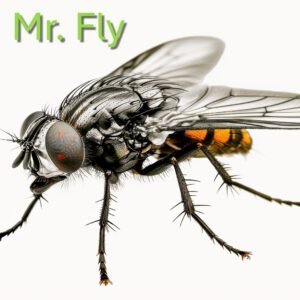Sophie Cunningham’s Martial Arts Background: The Hidden Edge Behind Her WNBA Toughness
Sophie Cunningham’s journey from martial artist to WNBA enforcer reveals the powerful influence of discipline, control, and physical toughness. With a black belt earned at age six, her background in Taekwondo and Krav Maga helped build the mental and physical edge that defines her game today
Fans and analysts frequently praise Indiana Fever guard Sophie Cunningham for her fearless play, physical toughness, and commanding presence on the court. A lesser-known yet profoundly influential aspect of her upbringing is her martial arts background, which underlies her relentless competitiveness on the WNBA hardwood.
During her formative years, she earned a black belt in Taekwondo at the age of six and began incorporating Krav Maga. Sophie’s early training in martial arts has been crucial in shaping her into one of the most aggressive and disciplined players in professional basketball.
Early Martial Arts Training: A Childhood of Discipline and Grit
Before her fame in women’s basketball, Sophie Cunningham was mastering high kicks, defensive stances, and controlled aggression in martial arts classes. At the age of six, she achieved what most adults struggle to accomplish – obtaining a black belt in Taekwondo. This feat speaks volumes about her physical talent, but also about her mental toughness and discipline that were ingrained in her from a young age.
Her remarkable commitment marked Sophie’s training with her sister. The Cunningham household not only encouraged sports but also promoted a culture of excellence, self-defense, and personal growth. Taekwondo is renowned for its emphasis on head-height kicks, jumping and spinning kicks, as well as fast kicking techniques.
How Martial Arts Shaped Her Basketball Career
The impact martial arts have had on Sophie Cunningham’s basketball career cannot be understated. Respect, focus, and control are the core values of martial arts, as they enable individuals to stay composed under pressure, defend with precision, and stand their ground in confrontational situations.
In the high-stakes, physically demanding environment of the WNBA, Cunningham is often referred to as an ‘enforcer‘ — a player who can set the tone physically, defend teammates, and handle volatile moments with calculated aggression.
Her teammates from her days at the Phoenix Mercury and now at the Indiana Fever consistently acknowledge her as a stabilizing presence, someone who leads by example and never gives up. Her presence is not random — it’s the result of years of martial arts training that have developed her inner discipline, reaction time, and confidence.
The Role of Krav Maga in Her Development
In addition to Taekwondo, Sophie also trained in Krav Maga, an Israeli self-defense system renowned for its practical applications, swift counterattacks, and emphasis on effectively addressing threats. Taekwondo provided the physical aspect, but Krav Maga provided the mental advantage — a grasp of confrontation, body mechanics, and psychological control.
Despite being overlooked by casual observers, these skills have had a direct impact on her game IQ, spatial awareness, and body control on the court. Whether it’s drawing a charge, evading a trap, or staying calm in a heated moment, Sophie’s martial arts instincts give her an edge that few players can duplicate.
Would Sophie Cunningham Teach Martial Arts Post-Basketball?
Despite the significant impact martial arts have had on Sophie’s athletic development, she has stated that she is not interested in teaching martial arts after she finishes playing basketball. In her words:
“Honestly, no. I just think it was something fun for me and my sister to do when we were younger,” Cunningham recently shared with LandonBuford.com.
“It taught us how to be hardworking, to be aggressive, disciplined, how to protect ourselves a little bit. We also did a little bit of Krav Maga. It was just something fun that we did growing up.”
This quote exemplifies her perspective: Martial arts were a formative experience, not necessarily a lifelong vocation. Sophie believes that martial arts have a positive impact on her character, not on her pursuit of a teaching career. Though she doesn’t plan on becoming an instructor, her martial arts values continue to influence every rebound, foul, and assist she makes in the WNBA.
Toughness, Leadership, and the Martial Artist’s Mindset
The ability to handle adversity, make quick decisions under pressure, and inspire others through action is often what sets good players apart from great ones in professional sports. Sophie Cunningham’s play reflects these qualities, which are deeply rooted in martial arts philosophy.
Sophie’s calm intensity is matched by her training as a trained martial artist, whether she’s stepping up for a teammate, engaging with physical defenders, or leading emotionally charged moments on the court. She doesn’t flinch. She doesn’t lose control. The hallmark of both elite athletes and true martial artists is channeling pressure into performance.
Martial Arts and Injury Prevention in High-Level Sports
The prevention of injuries is a benefit often overlooked by individuals with a martial arts background. Sophie’s training taught her how to properly fall, absorb impact, and move efficiently, which are essential skills for athletes in high-contact sports like basketball.
Taekwondo and Krav Maga were where her early years in these disciplines led to her superior balance, core strength, and proprioception (body awareness). Maintaining durability is crucial for a player who is known for giving their all on every possession due to these attributes.
A Role Model for Young Athletes
Sophie Cunningham’s journey is a perfect blueprint for young athletes seeking a strong foundation. Her story demonstrates how early exposure to martial arts can equip children not only with physical skills but also with a mindset of resilience, discipline, and confidence.
Parents frequently seek ways for their children to develop in different ways, and Sophie’s example demonstrates that Taekwondo and other martial arts can provide just that. Although pursuing a career in martial arts is not the ultimate goal, the lessons learned can be applied to virtually any field, particularly competitive sports.
Conclusion: A Legacy of Toughness Built on Martial Arts
Sophie Cunningham’s basketball success is not due to chance. From childhood, she was instilled with a martial artist’s mindset and elite training, both of which have contributed to her success. Her story illustrates how foundational skills learned outside of sport can become a competitive advantage in the game. While she may not be interested in teaching martial arts after her WNBA career, it remains unmistakable how it has influenced her journey. Sophie Cunningham is a living proof that combat sports and professional basketball have a strong connection.
Landon Buford is an accomplished sports and entertainment journalist based in Richardson, Texas, with over a decade of experience covering the NBA, WNBA, NFL, WWE, MLB, and the entertainment industry. Known for delivering high-impact stories and headline-making interviews, Buford has earned a global audience through content that blends insider access with compelling storytelling.
He previously served as director of editorial and brand communications at PlayersTV, where he helped shape the platform’s editorial voice and brand identity. He is also the founder and editor-in-chief of LandonBuford.com—an independent outlet with more than 1.6 million views and syndication from major platforms including Bleacher Report, Sports Illustrated and Yahoo Sports. Buford’s interviews with stars like Gary Payton, Kevin Durant, Mark Cuban and Chris Paul showcase his talent for meaningful, in-depth conversations.
His bylines have appeared in Sports Illustrated, Forbes, Heavy.com, Meta’s Bulletin and One37pm, where he has contributed exclusive interviews, breaking news and cultural insights. At Heavy.com, his work drew more than a million views in just eight months, and at One37pm, it contributed to record-breaking traffic numbers.
His work highlights the intersection of sports, fashion, music, and entrepreneurship—showcasing how athletes and entertainers use their platforms to inspire change, influence trends, and shape culture beyond the game. Landon has interviewed a wide range of figures from the NBA, NFL, and entertainment industries, consistently bringing authentic voices and untold stories to the forefront.
In addition to his journalism, Buford is an entrepreneur and content creator, dedicated to amplifying diverse narratives and driving meaningful conversations across media platforms. His passion for storytelling, culture, and innovation continues to make him a respected voice in the evolving landscape of sports and entertainment media.








